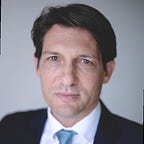Exceptional Talk between Valéry Giscard d’Estaing and Herman Van Rompuy
Linklaters and the Robert Schuman Foundationi brings together two Presidents to speak about Europe on 9th October 2013. This is the opening speech.
https://www.youtube.com/watch?v=1a5RI8675To&feature=youtu.be
President Giscard d’Estaing, President Van Rompuy, Your Excellencies the Ambassadors, Ladies and gentlemen of the parliament, Ladies and gentlemen the Presidents of the Bar (Bâtonniers), Dear friends, dear partners,
Linklaters is European both by its presence and its convictions. The evidence is here, in this room, where 45 of my partners come from 10 different European nationalities.
Involved in European economic history for 175 years, and established in Paris for 40 years, we are one of the oldest European companies.
What does it mean to turn 40?
40 is an important step, I know it from my own experience.
40 is the time to review ones achievements, but more importantly its the age when one chooses the path to follow for the next 20 years.
In 1934, Jean Guéhénno described, in his book Journal d’un homme de 40 ans, his first memories of Europe.
We are here tonight to talk about the practical steps of Europe’s construction in the coming 20 years.
During this exceptional talk, we will most certainly discuss the expectations of the generations born after 1968, who need certainties in order to invest.
Our generation is quite different from that of May 68[1], a generation born out of the “The Glorious Thirty” ( Les Trente Glorieuses[2]), but who finally brought about libertarian capitalism.
My generation has not lived the prosperity of these three post-war decades, but instead suffered the instability of successive crises. My generation is used to rigour and “excellence”. It will have the courage to undertake the desert crossing. However, in order to do that it needs to get a clearer picture of the European project which is becoming increasingly complex.
Our generation needs a radical change in the philosophy of Europe’s construction. This is no time for naive optimism, but it is time to bitterly defend our interests.
Europe’s will to set itself as an example has gradually weakened it. It requires its own companies to comply with restrictive rules without imposing such rules on their non-European competitors. Many of us think that this ideological naivety has heavily penalised European corporates.
Business perception here in Paris is that Europe protects against its own local State, especially against protectionism and against budgetary and fiscal instability but does not protect enough against non-European States or companies on security or economic issues.
It is a three-headed Hydra of Lena that Europe must fight: national protectionism, external threats and its own bureaucracy.
It sometimes feels like Brussels is only concerned with the first — national protectionisms.
President Giscard d’Estaing, we met in your home. It was July 4th, the day after the Coup in Egypt. You told me: ”What I am telling you today about Europe, I know it will happen. It will be Europe’s reality ”.
President Van Rompuy, the painstaking builder of impossible compromises, it is under your presidency that Europe received the Nobel Peace Prize in 2012. Your determination has helped Europe to overcome the crisis.
We are not here tonight to discuss the complex institutional construction which forms Europe today nor its political games or past whims.
What we expect from this exceptional talk tonight, is that you share with us your perspective on Europe, “tangible achievements” as Robert Schuman said.
The new generation I speak of is ready to go in search of lost growth, even if this means having to go through the desert crossing.
As Jean Monnet said: “I am not optimist, I am determined”.
On behalf of all Linklaters’ partners, thank you for accepting our invitation.
Thank you all for being here tonight, particularly our partners, the Schuman Foundation, Les Echos, the Executive Committee Members of Linklaters, Sir Chrisopher Bellamy, a former European judge in Luxembourg and Richard Holden.
Presidents, I do not know what you will say, so I will listen to you.
I should like to conclude with an haiku, a literary genre that you practice, President Van Rompuy
How very noble!
The one who knows nothing
Faced with the lightning-flash[3]
Thank you
[1] The May 1968 events in France were a volatile period of civil unrest punctuated by massive general strikes and the occupation of factories and universities across France.
[2] “The Glorious Thirty” refers to the thirty years from 1945–1975 following the Second World War in France. They are now considered as decades of economic prosperity.
[3] Matsuo Bashõ.
